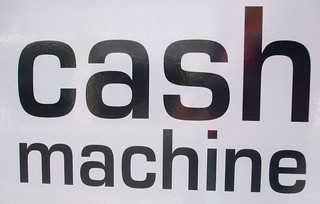I often get asked why I started this site. And my response is always that it was a great way for me to share some of the things that I was learning as my wife and I struggled with our debt. All of the things that we were learning through books, trial-and-error, and online that helped us, I tried to fold into some post here. My goal in sharing these things has always been two-fold. The first part is that I wanted someplace to record what I was learning. The second part, and the part that keeps me writing here, is that I wanted that information to help someone else. The more places it can be found online, the better. I’ve always felt that it has a bit more weight when it’s coming from someone who’s lived (lives) it. Nearly 5 years into the life of this site, we still struggle with debt sometimes. We still have lots to learn. Today, I’m going to share something that I think has the potential to change a lot of peoples lives. It’s called the Debt Movement.
The Debt Movement is the brain child of Jeff Rose. Last year, he brought us the Roth IRA Movement, and the Life Insurance Movement. Both of those were meant to bring the entire personal finance blog community together to talk about one subject on one day. I think both went very well. Jeff has raised the bar a bit this time around. The Debt Movement isn’t just about educating readers on a subject.
What is the Debt Movement?
It’s a 90 day challenge. Officially, it starts on February 1st, 2013 and will run for 90 days. Participants, like you and me, are challenged to aggressively reduce our debt over that 90 days. The goal is to help people payoff Ten Million dollars worth of debt in those 90 days. It’s a lofty goal, but I think it can be done!
In addition to the challenge, Jeff has rounded up a group of sponsors who are sponsoring a Debt Movement Scholarship. As of right now, the total is around $10,000 and is likely to grow as the movement gains speed and gathers new sponsors. There’s an application process, as well as a few rules, but certainly something to look into.
 Jeff has also partnered up with Ready For Zero. Ready for Zero is a company that has created some pretty sweet tools for paying off debt. Once you’ve signed up, you can enter in all of your information, along with payments, interest rates, and balances, and their software magically (or mathematically, I can never keep them straight) puts together a debt payoff schedule for you.
Jeff has also partnered up with Ready For Zero. Ready for Zero is a company that has created some pretty sweet tools for paying off debt. Once you’ve signed up, you can enter in all of your information, along with payments, interest rates, and balances, and their software magically (or mathematically, I can never keep them straight) puts together a debt payoff schedule for you.
What do you say? Will you come along on this journey? Let’s pay off some debt together!

Shane Ede is a business teacher and personal finance blogger. He holds dual Bachelors degrees in education and computer sciences, as well as a Masters Degree in educational technology. Shane is passionate about personal finance, literacy and helping others master their money. When he isn’t enjoying live music, Shane likes spending time with family, barbeque and meteorology.

